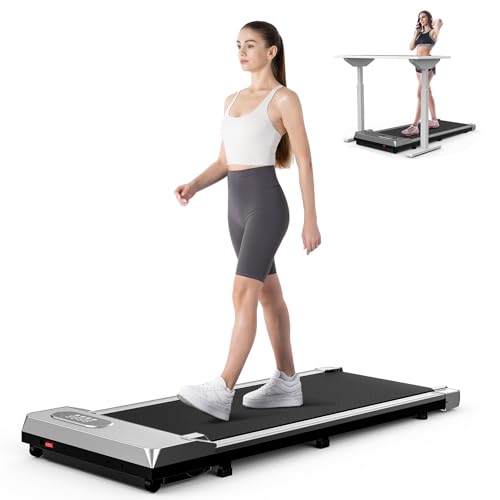Your Family Will Be Grateful For Getting This Walking Machine
The Walking Machine: A Comprehensive Guide to Your Fitness Companion
In today's hectic world, where time is a luxury, preserving a constant exercise routine can be an obstacle. For lots of, a walking machine— typically known as a treadmill— functions as a perfect physical fitness companion. This article offers a thorough appearance at walking machines, including their advantages, types, upkeep pointers, and regularly asked concerns.
Why Choose a Walking Machine?
Walking machines use a practical and efficient way to include cardiovascular exercise into everyday life. Here are numerous key benefits:
- Convenience: Walking machines allow people to exercise anytime, despite weather or time restrictions. They are best for hectic schedules.
- Adaptability: Users can stroll, jog, or run at their own pace and intensity.
- Safety: Walking machines present a lower danger of injury compared to outside walking or running, specifically for newbies or those recovering from injuries.
- Tracking Progress: Many treadmills included built-in monitors that track metrics like speed, range, and calories burned.
Kinds Of Walking Machines
When thinking about a walking machine, it's vital to select the right type based on individual fitness objectives and area restraints. Below are the main types of walking machines:
Type
Description
Manual Treadmills
These machines do not have a motor, and users need to walk or run to turn the belt.
Electric Treadmills
Powered by an electric motor, enabling users to set the speed and incline effortlessly.
Folding Treadmills
Created for simple storage, these treadmills can be folded up when not in use.
Desk Treadmills
Ideal for a double work and exercise environment, these compact machines enable walking while working.
Slope Trainers
These allow users to imitate uphill walking, boosting exercise intensity and calorie burn.
Picking the Right Walking Machine
Picking the best walking machine can substantially affect motivation and effectiveness. Here are some factors to consider:
Key Features to Look For
- Motor Power: A powerful motor guarantees a smooth and consistent exercise. For periodic walkers, a 1.5 HP motor is usually enough; for much heavier usage, look for 3.0 HP and above.
- Belt Size: A wider and longer belt provides more space for a comfy stride. Requirement sizes range from 16 inches wide and 50 inches long.
- Slope Options: Adjustable incline settings can replicate walking or running uphill, increasing the intensity of the exercise.
- Shock Absorption: Good shock absorption decreases the danger of joint injuries and improves convenience.
- Console Features: Look for built-in exercises, heart rate monitors, and connectivity features like Bluetooth for a more appealing experience.
Budget Considerations
Walking machines can be found in a large range of prices, depending upon functions and construction quality. Here's a rough budget breakdown:
Price Range
Functions
Under ₤ 300
Standard manual or small electric treadmills with restricted features.
₤ 300 – ₤ 700
More advanced electric treadmills with slope, medium power motors, and better service warranties.
₤ 700 – ₤ 1500
Top quality electric treadmills with larger built-in screens, extensive functions, and service warranties.
₤ 1500 and above
High-end models using sophisticated technology, features, and long lasting building for serious physical fitness enthusiasts.
Upkeep Tips for Your Walking Machine
To ensure durability and optimal performance of a walking machine, consider the following maintenance ideas:
- Regular Cleaning: Dust and sweat can accumulate on the machine and the belt. Clean down the surface areas and clean the belt regularly.
- Lubrication: Depending on the model, lubing the running belt occasionally can prevent wear and tear. Examine carmellacroucher.top for suggested lubrication schedules.
- Examination: Periodically check the machine for loose screws or worn parts. Tighten up and change as required.
- Calibration: Occasionally, check the calibration of your machine's metrics to guarantee they offer precise information.
- Appropriate Use: Follow the producer's recommendations for weight limits and operational standards.
Frequently Asked Questions About Walking Machines
1. Are walking machines an excellent exercise?
Yes, walking machines offer an exceptional cardiovascular exercise, can assist with weight reduction, and improve overall health.
2. How typically should I use a walking machine?
Go for at least 150 minutes of moderate-intensity aerobic activity weekly, which can quickly be attained with regular sessions on a walking machine.
3. Can I reduce weight on a walking machine?
Yes, including a walking machine routine into a healthy diet can promote weight loss, particularly if combined with intervals and incline training.
4. Is it safe for elders to utilize a walking machine?
Yes, walking machines can be safe for elders with low-impact settings and security features like handrails. Nevertheless, people ought to seek advice from their doctor before starting any exercise program.
5. What's the distinction in between a treadmill and a walking machine?
The term “walking machine” normally describes a treadmill intended for walking, while “treadmill” can describe machines utilized for various intensities, including running.
With their adaptability and convenience, walking machines can considerably improve one's fitness journey. By carefully choosing the right type, guaranteeing correct upkeep, and including various workout strategies, users can optimize their walking machine's benefits. As with any exercise regimen, consistency is key to attaining lasting physical fitness results.
